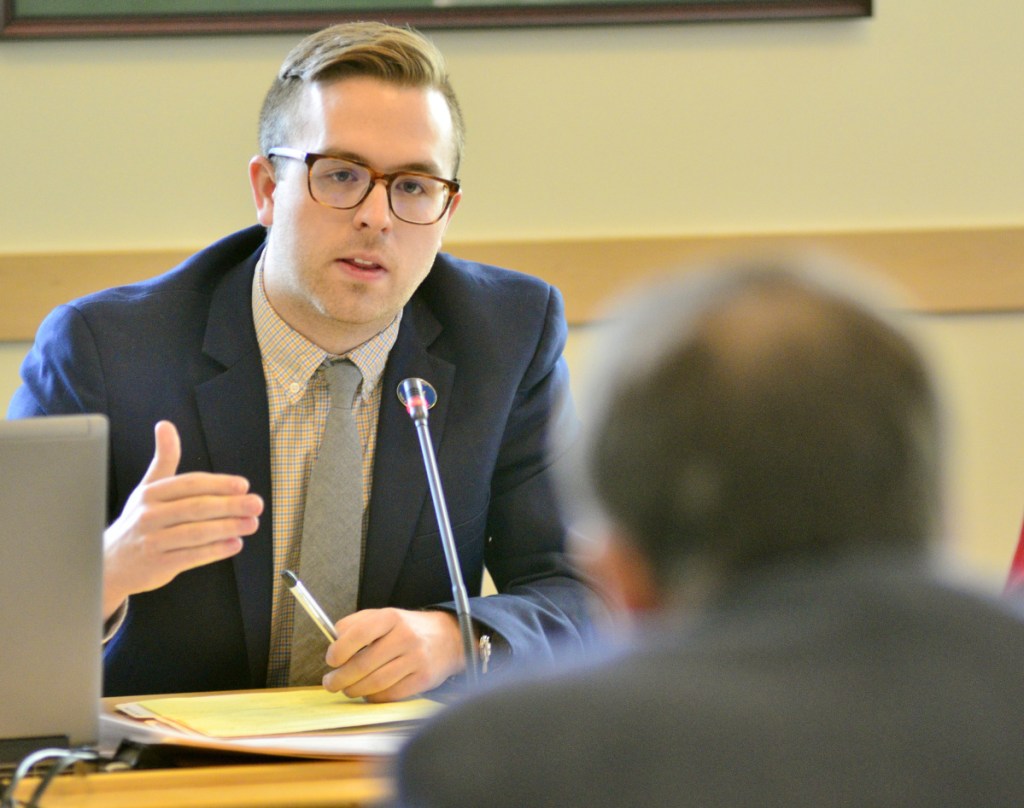AUGUSTA – Maine lawmakers are considering a bill that would ban therapy practices for minors that use shame, pain or coercion in an effort to discourage same-sex attraction and alter a person’s sexual orientation.
Supporters of the ban say so-called “conversion therapy” does more harm than good and that a person’s true sexual orientation isn’t something that needs to be fixed anyway.
The bill, sponsored by state Rep. Ryan Fecteau, D-Biddeford, saw dozens of supporters and opponents testify Wednesday before the Legislature’s Labor Commerce Research and Economic Development Committee.
Fecteau said he was sponsoring the legislation because he was pushed toward conversion therapy himself by a university administrator he respected and trusted while in college. He said the notion that there was somehow something wrong with him triggered suicidal thoughts.
“This openly gay young man who was finding his way in life, and who had found the guts to come out to his parents, and the confidence to lead a LGBTQ student organization, become student body president, and work as paid staff on a marriage equality campaign, could not shake the self-hatred, unworthiness and haunting message that he was broken after a trusted university administrator told him, in essence seek ‘reparative therapy’—to be ‘beyond gay’,” Fecteau said.
It’s not clear whether conversion therapy is now being practiced in Maine, but if passed into law, Maine would join nine other states with similar bans. Another 20 states are considering conversion therapy legislation in 2018. Earlier this month a similar bill passed the New Hampshire House of Representatives, on a vote of 179-171, reversing an earlier vote to reject the ban, according to the Associated Press. Other New England states that have passed laws banning the widely discredited therapy include Connecticut, Vermont and Rhode Island.
“LGBT youth do not have a defect or disorder,” Fecteau said. “They do not need to be repaired.”
Fecteau offered a long list of health and mental health care organizations that have condemned the practice, including the American Psychiatric Association, American Psychological Association and American School Counselor Association.
“These organizations condemn the practice on the premise that it has time and time again been proven to cause tremendous physical and psychological harm to children and fails to achieve its goal of “changing” a person’s sexual orientation or gender identity,” Fecteau said.
Peter Michaud, a nurse and attorney with the Maine Medical Association, testified in support of the bill, saying conversion therapies had “no scientific basis” and “when practiced on a young person by an adult is not therapy it is abuse.”
The bill, L.D. 912, would prohibit a counselor from trying to change a minor’s sexual orientation with conversion therapy techniques, including those that encourage a patient to shun members of their own family. The bill does allow a therapist to help a patient develop support systems as well as coping and self-acceptance skills.
Opponents to the bill, including the Christian Civic League of Maine, said it could erode the rights of parents, patients or religious counselors, and it may not allow therapies aimed at helping survivors of sexual abuse.
Rep. Richard Pickett, R-Dixfield, testifying in opposition to the bill, said the methodologies the bill seeks to prohibit are already against Maine law and that there have been no known cases of the practices being used in Maine. He said some victims of trauma or child abuse have benefited from patient-driven reparative therapies that could also be prohibited by the bill.
“I don’t believe government should be passing legislation where there are winners and losers,” Pickett said, “where some people can have the therapy they want and others cannot.”
Rep. Jeff Hanley, R-Pittson, also opposed the bill, saying it “attacks the very foundation of our society and families. Should this become law the state and not the parents will control how a child will be talked to, treated for, for what they are thinking and feeling about themselves. It would also remove the rights of the mother and father to choose how to care for the child in a manner that reflects their belief.”
Support for the bill on the labor committee appeared to be divided largely along party lines, with Republicans in opposition and Democrats offering their support. Its outcome in a closely divided Legislature, with the House controlled by Democrats and the Senate by Republicans, is uncertain.
A work session on the bill has not been scheduled.
Scott Thistle can be contacted at 713-6720 or at:
sthistle@pressherald.com
Twitter: thisdog
Send questions/comments to the editors.




Comments are no longer available on this story